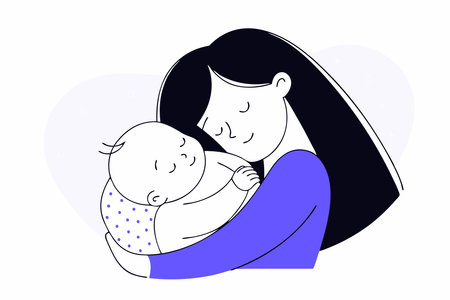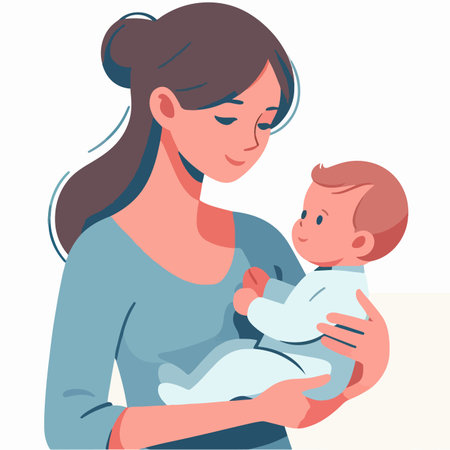Understanding Formula Milk and Why Preparation Matters
For many UK families, formula milk plays an essential role in supporting newborns’ growth and development, especially when breastfeeding isn’t possible or needs to be supplemented. Formula milk is a specially designed product that closely mimics the nutritional profile of breast milk, providing your baby with vital nutrients required for healthy physical and cognitive development. The NHS underscores the significance of preparing and storing formula milk correctly—improper preparation can introduce harmful bacteria or lead to nutritional imbalances that may impact your little one’s wellbeing. Following NHS safety guidelines not only safeguards your baby’s health but also fosters a secure and nurturing start to their life journey. The table below highlights key reasons why proper formula preparation matters:
| Reason | Why It Matters |
|---|---|
| Prevents bacterial contamination | Reduces risk of infections such as gastroenteritis |
| Ensures correct nutrition | Supports optimal growth and brain development |
| Promotes safe feeding routines | Avoids over- or under-dilution which can harm your baby |
Taking time to understand these basics and following NHS-recommended steps ensures you provide the safest, healthiest feeding experience for your newborn, laying strong foundations for their future.
Essential Equipment for Formula Preparation
Ensuring your newborn’s safety and well-being begins with having the right tools to prepare formula milk. According to NHS guidance, using clean, properly sterilised equipment is crucial for minimising the risk of infections and supporting healthy development in those early days. Here’s a rundown of the essential kit every UK parent should have on hand:
Bottle Feeding Equipment Checklist
| Item | Purpose |
|---|---|
| Sterilised Bottles | Hold prepared formula; must be thoroughly cleaned and sterilised before each use |
| Sterilised Teats | Allow your baby to feed comfortably; teats should match your baby’s stage and be free from cracks or tears |
| Bottle Brush | For scrubbing bottles and teats prior to sterilisation, ensuring all milk residue is removed |
| Steriliser (Electric, Microwave, or Cold Water) | Kills harmful germs; choose a method that fits your lifestyle and space at home |
| Kettle or Boiling Pan | Boils fresh tap water, which is essential for safe formula preparation as per NHS recommendations |
| Formula Powder Storage Container (optional) | Keeps pre-measured formula handy for night feeds or when out and about |
Safe Water Sources in the UK
NHS advice clearly states that only freshly boiled tap water should be used for preparing formula feeds. Bottled water is not recommended unless there’s no safe alternative, as some brands contain too much sodium or sulphate. If you do need to use bottled water, check the label: sodium (Na) should be less than 200mg per litre and sulphate (SO4) less than 250mg per litre.
Key Points for Safe Water Use:
- Always boil tap water and let it cool for no more than 30 minutes before mixing with formula powder.
- Avoid using artificially softened or previously boiled water, as these may contain higher levels of minerals or bacteria.
Creating a Calm Feeding Environment
Preparing ahead by having all your equipment washed, sterilised, and laid out can help reduce stress—for both you and your baby—during those frequent feeds. Involving your partner or older siblings in setting up feeding routines can also foster positive family interactions and make everyone feel included in caring for your newest arrival.

3. Step-by-Step Guide to Preparing Formula Safely
Ensuring your babys formula milk is prepared correctly is vital for their health and well-being. The NHS recommends following these step-by-step instructions to reduce the risk of illness from bacteria that may be present in powdered formula. Use only British-standard equipment and always follow the manufacturer’s guidelines alongside NHS advice.
Essential Equipment Checklist
| Item | British Terminology | Purpose |
|---|---|---|
| Bottle and Teat | Feeding Bottle & Teat | To hold and deliver the formula safely to your baby |
| Steriliser | Bottle Steriliser or Boiling Method | Keeps bottles, teats, and utensils free from harmful germs |
| Kettle or Jug | Kettle (preferably electric) | For boiling fresh tap water to make up the feed |
| Formula Scoop | Level Scoop (provided in tin) | Measures out correct amount of powdered formula |
| Cooled Boiled Water | Freshly Boiled Tap Water, cooled for no more than 30 minutes | Makes up the feed at a safe temperature (above 70°C) |
NHS-Approved Steps for Safe Formula Preparation
- Wash Your Hands: Always start by washing your hands thoroughly with soap and warm water. Clean all work surfaces before preparation.
- Sterilise Bottles and Equipment: Use a steriliser, or boil bottles, teats, lids, and any utensils for at least 10 minutes.
- Boil Fresh Tap Water: Fill your kettle with fresh tap water (not pre-boiled or bottled water). Boil and then leave it to cool for no more than 30 minutes so it remains above 70°C.
- Add Water to Bottle: Pour the correct amount of boiled water into the sterilised bottle first – always check the tin for precise measurements as per your baby’s age and needs.
- Add Formula Powder: Using the provided level scoop, add the exact number of scoops recommended on the packaging. Do not add extra powder or water.
- Mix Thoroughly: Place the sterilised teat and cap on the bottle. Shake well until all powder has dissolved completely.
- Cool and Test Temperature: Hold the bottle under cold running tap water to cool it quickly. Test a few drops on the inside of your wrist – it should feel lukewarm, not hot.
- Feed Immediately: Feed your baby straight away. If needed, store in the back of the fridge within 30 minutes; never leave formula at room temperature for longer than necessary.
Quick Reference Table: Formula Preparation Steps
| Step | Description (British Best Practice) |
|---|---|
| 1. Wash Hands & Surfaces | Cleansing reduces contamination risks before starting. |
| 2. Sterilise Equipment | Keeps bottles/teats germ-free via boiling or sterilising device. |
| 3. Boil Fresh Tap Water | Kills bacteria; always use freshly boiled, cooled less than 30 mins. |
| 4. Measure Water First | Poured into bottle using measurements provided on formula tin. |
| 5. Add Level Scoops of Powder | Scoop provided in tin; do not pack or heap powder. |
| 6. Shake Well to Mix | No lumps should remain; ensure full dissolution of powder. |
| 7. Cool Under Running Water & Test Temp | Lukewarm is ideal – prevents burns or discomfort. |
NHS Tips for Success:
- Avoid using bottled or artificially softened water as these can have unsuitable mineral content.
- If you need to prepare feeds in advance (for example, night feeds), cool them quickly and store at the back of the fridge for up to 24 hours. Always reheat safely according to NHS guidelines and never microwave bottles as this can cause uneven heating.
- If unsure about quantities or preparation steps, consult your health visitor or GP for support tailored to your babys needs.
- Your calm presence during feeding times fosters trust and connection—talk softly or make eye contact as you prepare and offer each bottle, nurturing both body and bond.
This careful approach ensures every bottle meets NHS safety standards while supporting your baby’s growth and your peace of mind as a parent in the UK context.
4. Safe Storage and Handling of Prepared Formula
Ensuring your baby’s formula milk is stored and handled safely is essential for their health and wellbeing. The NHS recommends preparing feeds fresh whenever possible, but when this isn’t practical, following correct storage guidance can help reduce the risk of harmful bacteria growth.
Recommended Storage Times and Temperatures
If you need to prepare formula in advance, always store it in the back of the fridge (not the door) at 5°C or below. Below is a helpful table outlining safe storage times:
| Storage Location | Maximum Time |
|---|---|
| Room temperature (up to 25°C) | Use within 2 hours |
| Refrigerator (≤5°C) | Up to 24 hours |
| Cooled boiled water (in sterilised flask) | Up to 4 hours |
How to Cool Formula Quickly
If you have just made up a bottle, cool it quickly to feeding temperature by placing it in a jug of cold water or holding it under cold running tap water. Make sure the water doesn’t rise above the neck of the bottle. Test the temperature by dripping some milk on your wrist—it should feel lukewarm, not hot.
Guidelines on Discarding Unused Feeds
Bacteria can multiply rapidly in prepared formula left at room temperature. If your baby doesn’t finish their feed within two hours, discard any leftover milk—never reheat or reuse it. This helps protect your newborn from upset tummies and infection.
Key Points to Remember
- Always label bottles with the time and date they were prepared if storing in the fridge.
- Avoid topping up or mixing old formula with new batches.
- Clean and sterilise all feeding equipment before each use.
Your Role in Safe Feeding
Caring for your baby means being attentive to their needs and staying mindful of these safety steps. By following NHS guidelines, you’re nurturing not only your baby’s body but also their sense of security during feeding times.
5. On-the-Go: Preparing and Transporting Feeds Outside the Home
Heading out with your newborn can feel daunting, especially when you need to ensure their feeds remain safe and fresh. The NHS recommends a careful approach to preparing and transporting formula milk away from home, minimising risks of bacteria growth while supporting your baby’s needs wherever you go.
Practical Tips for Outings
It’s always best to prepare feeds freshly whenever possible, but if you’re travelling or visiting friends and family, here are some practical steps:
- Take pre-measured formula powder: Use small containers or formula dispensers to carry the correct amount of powder for each feed.
- Use a vacuum flask: Fill a clean, sterilised flask with boiling water (above 70°C) before leaving home; this will keep water hot for several hours and is suitable for mixing with formula when needed.
- Bottles on hand: Bring sterilised bottles in a sealed bag or container to use when it’s time to prepare a feed.
- Cooled boiled water: For older babies who no longer require hot water for formula preparation, cooled boiled water can be transported in a sterile bottle for mixing with powder later.
Safe Feeding Checklist When Travelling
| Step | NHS Recommendation |
|---|---|
| Sterilise Equipment | All bottles, teats, and flasks should be sterilised before leaving home. |
| Keep Formula Powder Separate | Do not mix formula until your baby is ready to feed. |
| Prepare Fresh When Possible | If you have access to hot water (above 70°C), prepare feeds as you would at home. |
| If Pre-Made Formula Is Needed | If you must bring prepared formula, store it in a cool bag with ice packs and use within two hours. |
| Discard Unused Feed Promptly | Any leftover milk should be thrown away within two hours of preparation. |
Nurturing Your Baby’s Routine Away from Home
Every outing is an opportunity to nurture your baby’s sense of security by keeping routines consistent. Preparing ahead helps reduce stress—for both you and your little one—so you can focus on enjoying time together. Remember, asking friends or family about access to hot water in advance can make things easier. Trust your instincts, follow NHS guidelines, and give yourself plenty of time to get organised before heading out the door. This way, feeding times become meaningful moments of connection no matter where you are.
6. Recognising and Preventing Common Mistakes
Even the most attentive UK parents can occasionally slip up when preparing and storing formula milk for their newborns. Understanding the typical pitfalls and how to avoid them is crucial for your baby’s health and wellbeing. Below, we highlight common errors based on NHS guidance, along with practical ways to steer clear of these mistakes in your daily routine.
Common Mistakes Parents Make
| Mistake | Why It’s a Problem | How to Avoid |
|---|---|---|
| Reusing leftover feeds | Bacteria can quickly multiply in prepared formula, making it unsafe if left out or reused | Always discard any unfinished formula within 2 hours of feeding; never reheat or reuse |
| Improper cleaning of bottles and teats | Residual milk or bacteria in unwashed bottles can cause illness | Wash all feeding equipment thoroughly in hot soapy water, then sterilise before each use |
| Incorrect water temperature | Using water that’s too cool may not kill harmful bacteria in the powder | Prepare feeds with freshly boiled water cooled to no less than 70°C as per NHS advice |
| Pre-making feeds too far in advance | Storing formula for long periods increases risk of bacterial growth | Ideally, make up feeds as your baby needs them; if you must prepare ahead, cool rapidly and refrigerate immediately, using within 24 hours |
Top Tips for Error-Free Formula Preparation
- Keep hands and surfaces clean before preparing feeds.
- Avoid adding extra scoops of powder—always follow the instructions on the tin for correct proportions.
- If out and about, take pre-measured powder and a flask of hot water (above 70°C) rather than premixed bottles.
The Importance of Consistency and Vigilance
Your attention to these details not only protects your newborn from illness but also builds a nurturing environment where trust and security flourish between you and your baby. By being mindful and developing reliable routines around feed preparation, you’re supporting both your baby’s physical health and emotional development—something every UK family values deeply.
7. Where to Find Support and Further Information
Preparing and storing formula milk for your newborn can feel overwhelming at times, but you’re not alone. In the UK, there are a range of trusted resources and friendly professionals ready to help you make the best choices for your baby’s feeding journey. Whether you have a quick question about sterilising bottles or need reassurance about your formula-feeding routine, here’s where you can turn for support:
NHS Resources
The NHS provides clear, up-to-date guidance on formula feeding, bottle preparation, and safe storage practices. Their online resources are easy to navigate and tailored for families living in the UK. You can access step-by-step instructions, downloadable guides, and FAQs directly from the official NHS website.
Useful NHS Formula Feeding Links
| Resource | Description | Website |
|---|---|---|
| NHS Start4Life: Formula Feeding | Official advice on preparing, storing, and feeding formula safely. | NHS Start4Life |
| NHS Health A to Z: Bottle Feeding Advice | Comprehensive information covering common concerns and troubleshooting tips. | NHS Bottle Feeding |
Local Health Visitors
Your local health visiting team is a fantastic source of personal support. Health visitors are qualified nurses or midwives with specialist training in family and child health. They can answer questions about formula types, feeding routines, and help you feel more confident as a new parent. Most GP surgeries or children’s centres in the UK will have details of your assigned health visitor.
How to Contact Your Health Visitor:
- Check your baby’s Red Book (Personal Child Health Record) for contact details.
- Ask your GP surgery or local children’s centre.
- Visit your borough council website for community health visitor teams.
Parent-Friendly British Helplines
If you’d prefer to speak to someone directly for reassurance or urgent advice, these national helplines are staffed by knowledgeable professionals who understand the challenges of formula feeding:
| Helpline Name | Contact Number | Service Details |
|---|---|---|
| NHS 111 | 111 (free from any phone) | 24/7 advice for urgent medical questions including infant feeding concerns. |
| NCT Infant Feeding Line | 0300 330 0700 | Support from trained breastfeeding and bottle feeding counsellors daily (8am–midnight). |
| The National Breastfeeding Helpline (also supports formula queries) | 0300 100 0212 | Open every day 9:30am–9:30pm; welcomes questions about mixed or exclusive formula feeding. |
No matter where you are in your parenting journey, reaching out for guidance can help build your confidence and strengthen your bond with your baby. Remember, asking questions is part of learning—and there’s plenty of friendly support available across the UK whenever you need it.


